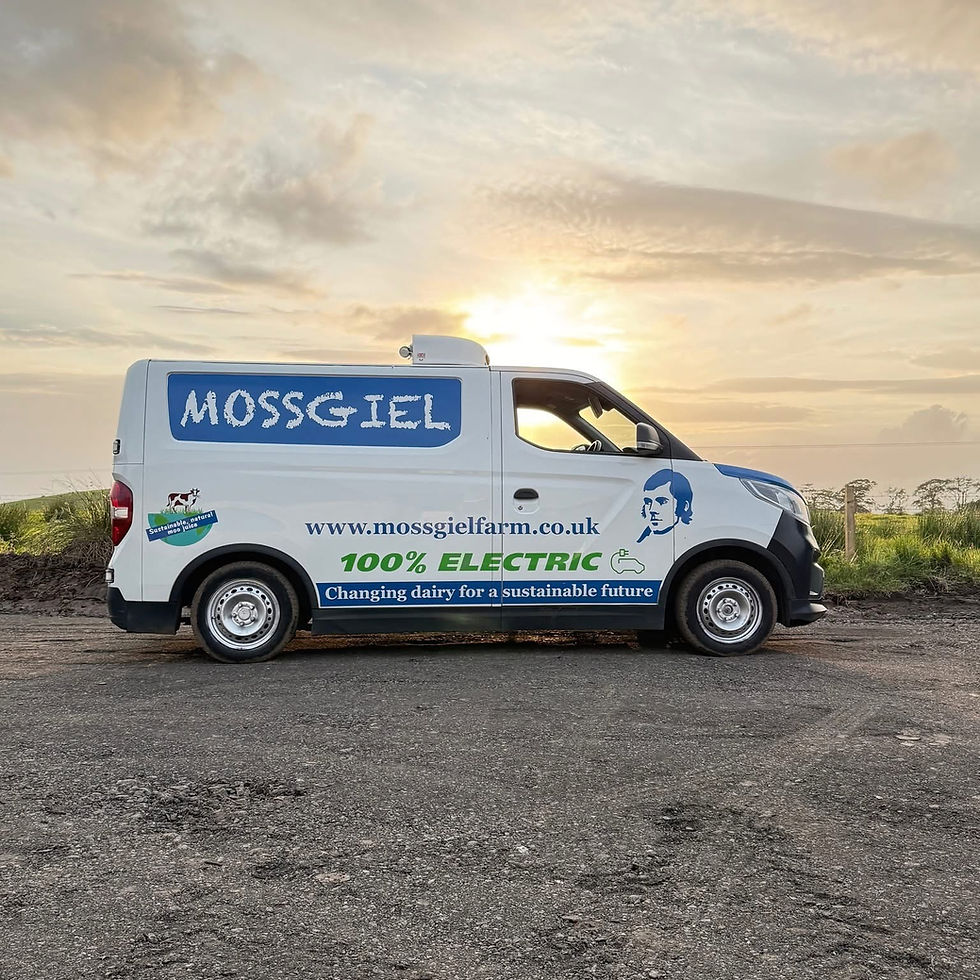‘Milking Every Mile’ The EV Revolution from Mossgiel Dairy Farm
- Ayrshire Daily News

- Jul 27, 2025
- 2 min read
When you think of a traditional Ayrshire dairy farm, you probably picture rolling fields and fresh milk, not electric vans quietly gliding through the countryside. But Mossgiel Organic Dairy has been rewriting that script, and in their words: “EVs, you either love them, or love to hate them. Here, we’re all in.”

The decision to ditch diesel for electric wasn’t universally applauded. “We’ve even attracted hate for our choice of delivery vehicles,” they admit.
Still, that didn’t stop this family-run farm from adding six fully electric vans to their fleet over the past four years, with only two diesels kept on for the longest routes. And now, with 406,969 miles on the clock, Mossgiel has plenty of real-world experience to share.
There have been challenges, of course. They’ve learned that using the heater in a Scottish winter can drain your range faster than a golden retriever at a buffet, that tyre choice really matters, and that forgetting to plug in overnight can make for an awkward early morning dash to a charger. But the numbers tell a story that’s hard to ignore.
Critics of EVs often point to the carbon cost of manufacturing batteries – and they’re right to.
Mossgiel’s calculations put that figure at 63 tonnes of CO₂e across their six vans (including the cost of the solar panels they use to charge them). Running those vans over nearly 407,000 miles adds another 31 tonnes, though their solar setup knocked 16 tonnes off that, bringing the total to about 78 tonnes of CO₂e.
If they’d stuck with diesel, those same miles would have belched out around 135 tonnes of emissions.
Even factoring in the upfront hit for batteries, Mossgiel is already 57 tonnes better off, and the gap grows with every mile.
Battery life has been one of the biggest concerns around EVs, and understandably so. But Mossgiel’s experience tells a different story: after four years, their first three vans have lost an average of just 2% of range.
Are EVs perfect? Probably not. Will they single-handedly save the planet? Unlikely. But for small farms and businesses willing to put in the effort, they can make a meaningful difference.
Mossgiel’s team sums it up best: “We’ll enjoy the journey while we all find out.”





